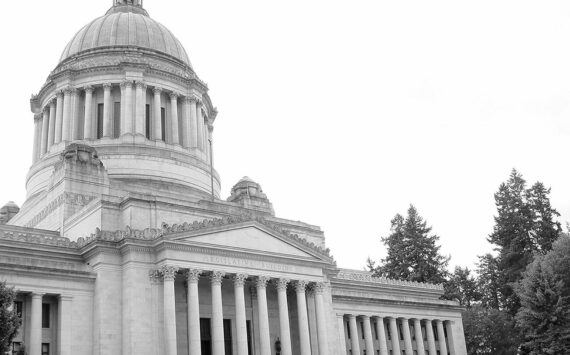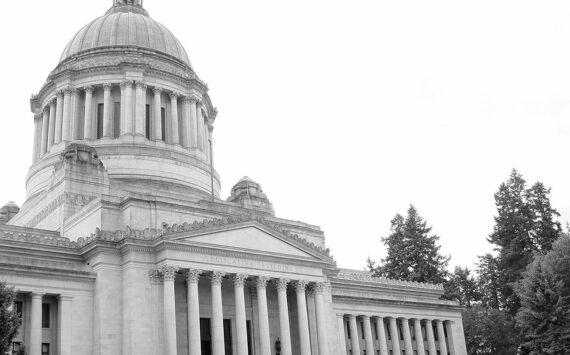By Morf Morford
Tacoma Daily Index
There’s an old saying (old in internet years, anyway) that, thanks to the internet, everyone is an expert – in everything.
It’s not true, of course, but many of us either believe it or act as if it were true.
Pick any topic – especially those that roil our passions, fill our headlines and dominate our conversations.
You’d expect an election year to be at a higher energy level, but who of us could have imagined anything like the whipsaw of events, challenges and convolutions that have become our near daily diet for the last half of 2020?
From the coronavirus, to anti-racism activism, violence at protests, an unexpected, ever shifting police debate, unprecedented unemployment, a tanking economy and an unpredictable school year, the standard issues of any party’s political platform have been swallowed up by the issues surging around us all.
Who of us, after all, has not been directly impacted by at least one – if not several of these?
The stakes (especially in a presidential election year) are higher – perhaps higher and more defined – and possibly even more muddled than ever.
Some seek to define lines, categories, even political parties as all on one side, others confuse (for their own purposes, apparently) the ever-shifting political, economic and ethnic terrain.
We, at many core levels, seem to have lost track of who we are. When some bring bear spray and other weapons to a demonstration, the First Amendment (right to free assembly and expression) seems to have gotten lost in the blur.
Our nation, after all The United States, stand, or at least used to stand, for respectful free expression, and certainly free and fair elections.
A little knowledge is a dangerous thing
I have a cousin who considers herself as informed, and even a student (“a big fan” of history, as she put it).
When I recommended a series of books that I thought were particularly good (The Hinges of History series by Thomas Cahill) she replied, “Oh, I don’t read books. I just look online. It’s amazing what you can find there.”
Yes, it is amazing.
At her invitation I looked over her social media posts, and yes, I was “amazed” all right. She posted – and reposted – every unfounded, crack-pot, paranoid, lunatic-fringe, shrieking conspiracy theory – at least those that confirmed her biases – that the internet had to offer.
My sources are unreliable, but their information is fascinating. – Ashleigh Brilliant
I must admit to being a bit biased myself – I like books, facts and actual documentation behind my beliefs.
I like ideas and values that pass the test of time; those things that are true – and stay true.
Basic principles, in economics, politics or neighborly behavior are not that complicated – and are very close to eternal. Ground level decency, honesty and good work will serve any of us in any context.
I grew up (yes, a few eons ago) with simple assumptions like “Honesty is the best policy” or “A fair day’s wage for a fair day’s work.”
People back in those innocent days held (and respected) differences of values, beliefs and priorities.
Few, if any back then would have even considered (or tolerated) the demonizing – or even bodily threats we now see on our screens routinely.
As we have all seen recently, those flickering screens can isolate us much as they unite us.
The social media “rabbit holes” will not inform, strengthen or define us.
A functional, working, authentic, enduring democracy demands solidarity across any and all “identity politics” categories.
Democratic activity involves not just voting, but also deliberation – our Founding Fathers insisted on an informed electorate – voting rights then were certainly NOT for everyone. For the first many years of our republic, only white, male landowners over a certain age could vote.
The assumption (for better or worse) was that they would (and could) speak for us all and represent the interest of all.
Yes, that was a naïve, if not mistaken, faith.
Our Founding Fathers had soaring ideals, visions of fellowship, and national identity that were aspirational – and, as well all know, not always practiced.
One of the key principles they lived by was “United we stand, divided we fall.”
That simple principle is as true now as it was then.
“We the people” is not this group versus that group – it is “we” – all of us.
Our political (and economic) system only works when people make an effort to listen to and understand one another. Moreover, we must be willing to moderate our claims and intentions in the hope of finding common ground on which to base political decisions. Such social, public activity cannot be realized by individuals pursuing their own interests; it requires some concern for the common good.
And that “common good” is not just other people, others state or other constituencies.
Any decision, or the values that frame it, should be for the good of the communities beyond our doors and beyond our sightlines – even beyond our lifetimes.
What binds us, what binds all citizens, together is our common allegiance to the ideals embodied in a shared political culture.
With this in mind, the revised citizenship test (2008) attempted to move away from civics trivia to emphasize political ideas and concepts. The new test asks more open-ended (and perhaps more demanding) questions about government powers and political concepts: “What does the judicial branch do?” “What stops one branch of government from becoming too powerful?” “What is freedom of religion?” “What is the ‘rule of law’?”
An internet search for any of these is likely to lead you down as many ‘rabbit holes’ as reliable sources.
These social media tidbits, maybe tantalizing and distracting, but they lead to the lack of caring, sense of alienation, and the lack of involvement that is the death knell of any relationship, any community, any culture.
Distrust and disconnection have become the theme too many of us live by.
How many of us truly care about ourselves or our own things? How could we even begin to care about someone else? Especially those that don’t even exist yet?
The term “being on the right side of history” was a phrase that had some currency a while ago – and still may help inform our choices in various areas from employment to resource development to our voting habits.
What is the culture, the sense of community, national definition we are literally constructing by every decision, from recycling to wearing a face mask to how we vote or what sign we might have in our yard?
It doesn’t help that everyone’s an expert – on everything.
When a person believes themselves absolutely right on any issue, there seems to be no limit as to how far they will go to give themselves permission to push their particular agenda – and squash any who might disagree.
The greatest obstacle to discovering the truth is being convinced that you already know it.
– Ashleigh Brilliant
As Ezra Pound pointed out, “Literature is news that stays news.”
And so I’ll close with a larger excerpt from the poem by Alexander Pope;
A little learning is a dangerous thing;
Drink deep, or taste not the Pierian spring:
There shallow draughts intoxicate the brain,
And drinking largely sobers us again.
The internet offers tantalizing, even intoxicating tidbits. This is not knowledge; this is not informative. This is a distraction that only makes us all dizzy and disoriented.
To put it mildly, those YouTube videos will not “inform” you – they will only do what they were designed to do – distract you, derail you from focused, coherent thought and, whether they stir you to action or paralyze you into passivity, the result is the same; they are directing your voice and distorting, if not controlling, your beliefs and actions.





